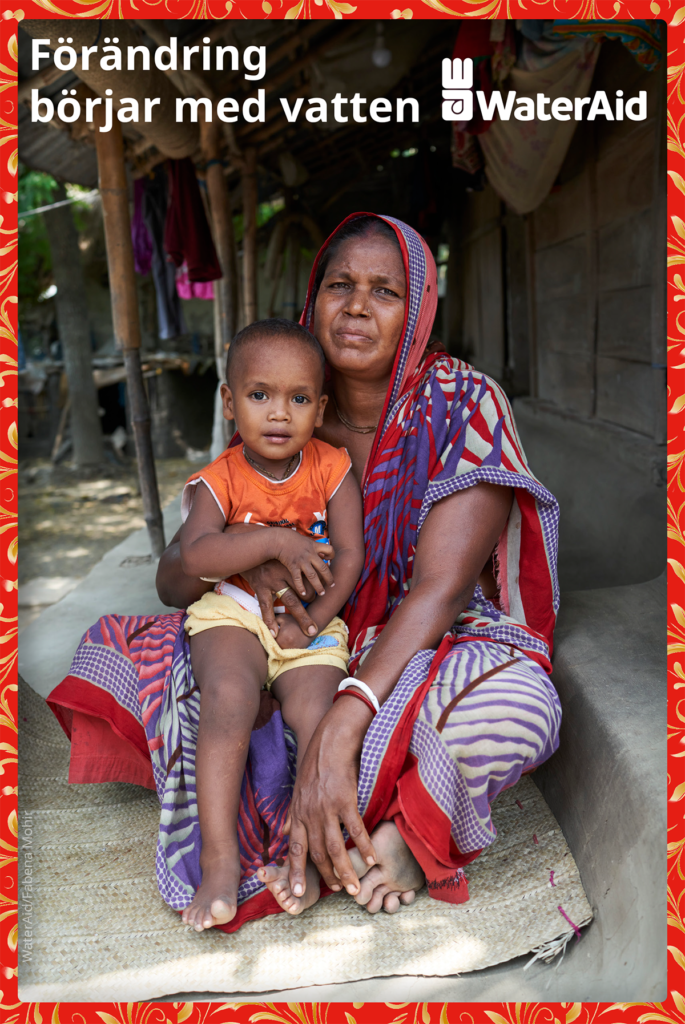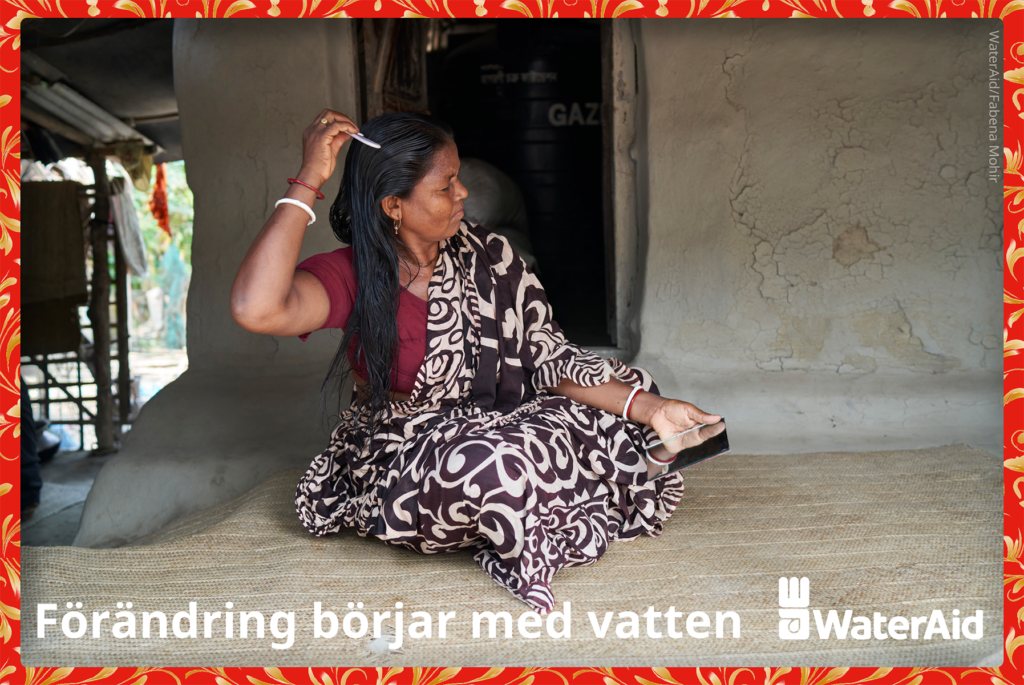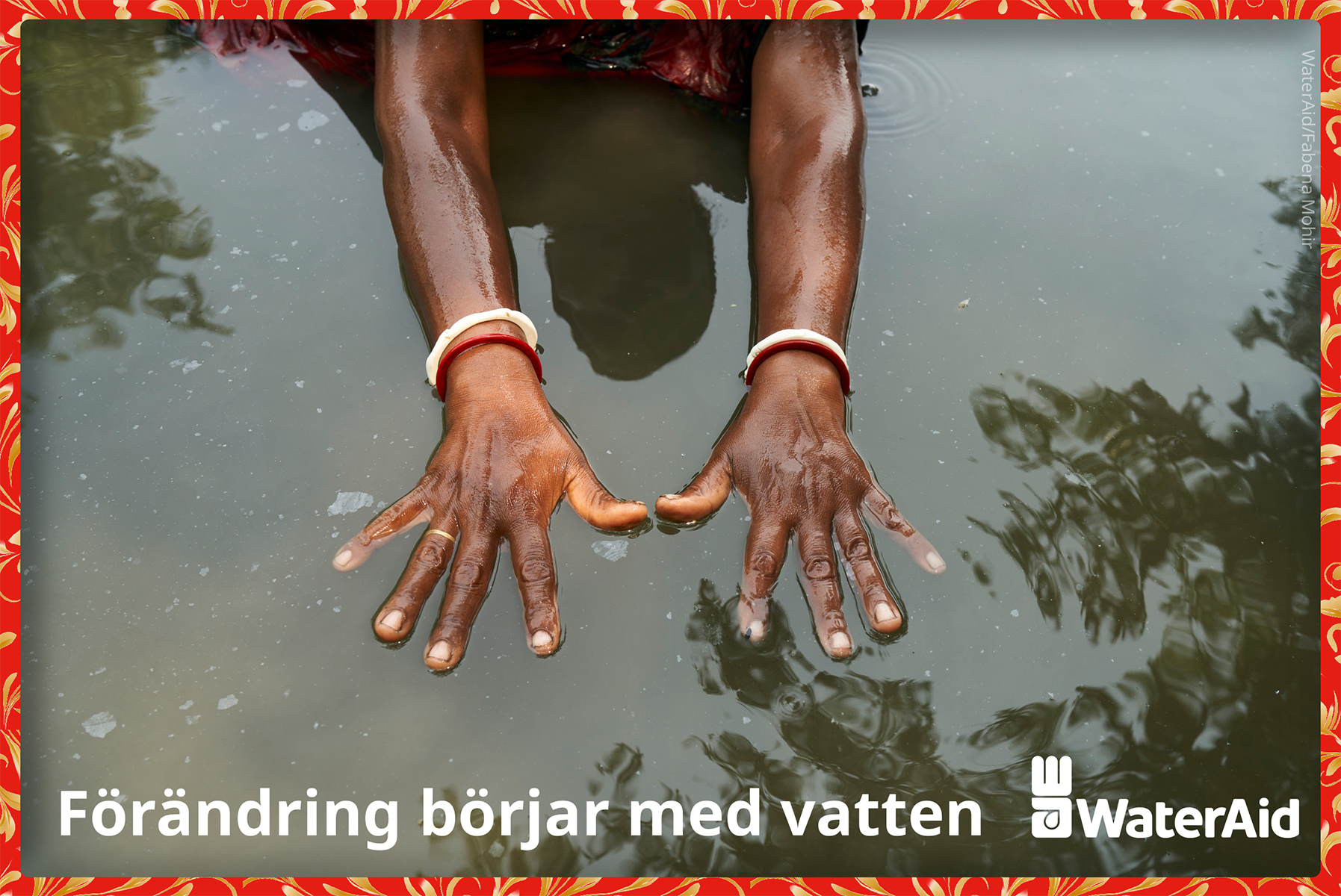If water and sewage do not work in the community, nothing works. We live and work in an exciting time when awareness of water as food and sanitation as a critical societal function is growing. Those of us who work on this daily know how important it is, and it is becoming increasingly clear to the average man and woman as we see flooding, overflowing, and changing climate become more frequent and common, as well as the water and wastewater tariffs rising. Much has been written and debated about water this year, and we hope that more investments and new financing solutions are on the way.
On a global scale, lack of access to clean water and toilets creates major problems and obstacles. Clean water and sanitation are basic human rights and fundamental to sustainable development.
Change starts with water
As a Christmas gift this year, we are donating money to WaterAid. We support WaterAid’s important efforts to give the Munda people of Bhetkali, Bangladesh, the opportunity for a better future.
The people of Bhetkali, Bangladesh, belong to the Munda ethnic minority. They suffer extreme poverty compared to the rest of the population and are marginalised because of their ethnic status. The community is severely affected by the lack of clean drinking water and toilets. The women are solely responsible for providing water to the households and must walk 3–4 hours every day with heavy canisters. Waterborne diseases are common, especially among children. It may sound hopeless, but with relatively simple means, clean water can actually provide the basis for profound change in Bhetkali.
Shyamoli lives with her husband and two sons. She grows rice and fish but has problems with her back because of her work. She also works as a doula and has delivered 45 babies to date. In addition, she regularly cooks for others.

Like many other women in the small community, Shyamoli has started losing her hair. She believes this is due to climate change having increased the salinity of the water.
I collect all the hair that falls from my head and sell it in exchange for small pots, pans, plates and other such things …
I think we are losing hair because of weather fluctuations and extreme heat, water salinity and other changes we have experienced over the years.”
Shyamoli, resident of Bhetkali, Bangladesh
For now, she and her family share a toilet with five other households because they lack the means to maintain it on their own. Unfortunately, it is in such poor condition that Shyamoli often avoids using it. When a cyclone struck, it destroyed the toilet to such an extent that Shyamoli’s family and the other families had to defecate in the open. Twice a day, she must walk 3 kilometres to fetch water. She finds it unpleasant to walk the long distance by herself, so she often has trouble sleeping the night before she has to walk alone.

